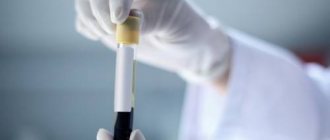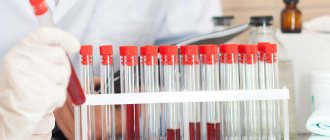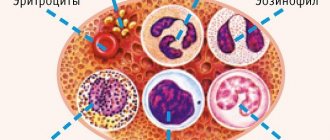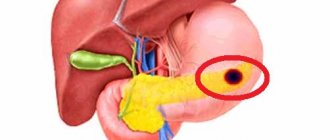More details
Examination before IVF is mandatory.
The examination procedure is determined by Order of the Ministry of Health of the Russian Federation No. 107n dated August 30, 2012 “On the procedure for using assisted reproductive technologies, contraindications and restrictions on their use.” The diagnostic results are very important, because they determine whether you will be allowed to participate in ART programs or not. IVF is a complex and important undertaking that must be approached with full responsibility. The first stage of preparation for IVF is taking tests. The list of required studies is quite long, but IVF is not done without diagnostic results.
It is in your interests to undergo an examination before IVF at a specialized Reproduction Center. Only here you are guaranteed accurate results and a possible solution to the problem if something turns out to be wrong. At the Life Line reproduction clinic, you can take all the tests before IVF and go through all the specialized specialists, including a geneticist.
Tests for IVF patients under compulsory medical insurance 2020
We turned to the MAMA clinic after 3 unsuccessful IVF! in other clinics in the country.
Considering my age (43 years at the time of treatment) and the presence of many problems (adenomyosis, multiple fibroids, decreased follicular reserve due to age and resection of the right ovary, multinodular goiter, thrombophilia, male factor), the only hope was in the doctors of this center.
We have not seen such an individual approach anywhere else. The clinic has a team of real professionals.
We didn’t manage to get pregnant right away, but we believed and hoped, and in the 3rd protocol at the clinic it happened.
On March 3, our daughter Sashenka was born, for which I would like to say a HUGE THANK YOU, first of all, to the deputy chief physician, reproductive specialist, head of the reproductive department, Tatyana Sergeevna Sukhacheva, thanks to whose golden hands this miracle happened. She was in constant contact with us throughout the entire pregnancy, called every 2 weeks and adjusted medication prescriptions depending on test results, supported me in moments of fear and excitement, I didn’t even have to register in my city, that’s how Tatyana Sergeevna managed my pregnancy.
And even when our doctors told me that I was taking too many medications and that I needed to reduce my support, I unconditionally believed Tatyana Sergeevna, followed all her instructions and everything worked out.
In addition, our pregnancy was managed by endocrinologist Elena Ivanovna Eltsova, a wonderful doctor and person.
In the first protocol at the clinic, thanks to the joint actions of Tatyana Sergeevna and Elena Ivanovna in conducting androgen priming, the function of my right ovary was restored, which shocked the doctors in our city.
I would like to say huge words of gratitude to other doctors who participated in the creation of our miracle: reproductive specialist Yulia Mikhailovna Kossovich, !urologist!, !andrologist! Melnik Yaroslav Igorevich, nurses Potapova Elena Ivanovna, Fedorova Natalya Aleksandrovna, Vlasova Marina Aleksandrovna, assistant doctor Belova Ekaterina Evgenievna, anesthesiologist Belousova Svetlana Vasilievna.
I would also like to note that this clinic has a very strong embryological team, without whose work our success would be unthinkable, given our difficult situation. Thanks to embryologists!!!
I am sure: every couple will experience such a miracle thanks to the magic doctors of the MAMA Clinic, you just need to believe and not give up!
Pre-IVF examination for men
| Analysis | Delivery conditions | Validity |
| Spermogram | Sperm collection. Restrictions: 5 days abstinence from intimacy, 10 days no alcohol, no heat exposure for 10 days | 6 months |
| Flora smear | Urethral swab | 1 month |
| Smears for infections: cytomegalovirus, chlamydia, herpes - PCR method; mycoplasmosis, ureaplasmosis - culture | Urethral swab | 6 months |
| Culture for ureaplasma and mycoplasma | Urethral swab | 6 months |
| Tests for HIV, syphilis, hepatitis B and C | Blood analysis. Restrictions: taking antibiotics for the period specified by the doctor | 3 months |
| Blood test for anti-HCV | Blood analysis. Restrictions: taking antibiotics for the period specified by the doctor | 3 months |
| Herpes - human virus types 1 and 2, DNA determination (HHV-1, HHV-2, DNA) | Blood analysis | 6 months |
| Blood type, Rh factor | Blood analysis | One time |
| Karyotype | Blood analysis | One time |
List of tests to determine indications for the use of ART and determine the causes of infertility
- assessment of endocrine and ovulatory status (determining the level of prolactin, gonadotropins and steroid hormones in the blood, transvaginal ultrasound examination of the uterus and appendages);
- assessment of the patency of the fallopian tubes and the condition of the pelvic organs (by laparoscopy); if a woman refuses laparoscopy, alternative examination methods can be performed - hysterosalpingography, contrast echohysterosalpingoscopy;
- assessment of the condition of the endometrium (ultrasound transvaginal examination of the uterus (endometrium), hysteroscopy, biopsy of uterine tissue (endometrium);
- examination of the husband's (partner's) ejaculate; if sperm agglutination is detected, a mixed antiglobulin reaction of sperm is performed;
- examination of men and women for the presence of urogenital infections.
After determining the indications for IVF, in order to receive a referral for IVF under compulsory medical insurance, you must undergo the following tests
A man and a woman undergo an examination, which includes:
- determination of antibodies to Treponema pallidum in the blood;
- determination of class M, G antibodies to human immunodeficiency virus (hereinafter referred to as HIV) 1, 2, to the antigen of viral hepatitis B and C, determination of herpes simplex virus antigens in the blood;
- microscopic examination of genital secretions for aerobic and facultative anaerobic microorganisms, fungi of the genus Candida, parasitological examination for atrophozoites of Trichomonas;
- microbiological examination for chlamydia, mycoplasma and ureaplasma;
- molecular biological study for herpes simplex virus 1, 2, and cytomegalovirus.
For women:
- general (clinical) blood test, general therapeutic biochemical blood test, coagulogram (indicative study of the hemostatic system);
- general urine analysis;
- determination of class M, G antibodies to the rubella virus in the blood;
- microscopic examination of vaginal smears;
- cytological examination of the cervix;
- ultrasound examination of the pelvic organs;
- fluorography of the lungs (for women who have not undergone this study for more than 12 months);
- electrocardiogram registration;
- appointment (examination, consultation) with a general practitioner.
Women over 35 years of age undergo mammography. Women under 35 years of age undergo an ultrasound examination of the mammary glands; if signs of breast pathology are detected based on the results of the ultrasound examination, mammography is performed.
Women with a history (including close relatives) of congenital malformations and chromosomal diseases, women suffering from primary amenorrhea, are prescribed an examination (consultation) with a geneticist and a study of the chromosomal apparatus (karyotyping).
If endocrine disorders are detected, an examination (consultation) with an endocrinologist is prescribed, and an ultrasound examination of the thyroid gland and parathyroid glands, kidneys and adrenal glands is performed.
Women's husbands (partners) undergo ejaculate testing.
If pathology of the pelvic organs requiring surgical treatment is detected, laparoscopy and hysteroscopy are performed at the stage of providing specialized medical care to patients. If hydrosalpinx is present, a tubectomy is performed.
Visually intact ovaries should not be subjected to any trauma, including the effects of mono- and bipolar coagulation.
Subserous and interstitial myomatous nodes identified during laparoscopy, which by location and size (more than 4 cm) can have a negative impact on the course of pregnancy, are removed. If submucosal myomatous nodes or endometrial polyps are detected during hysteroscopy, hysteroresectoscopy is performed.
Pre-IVF examination for women
| Analysis | Delivery conditions | Validity |
| Blood type, Rh factor | Blood analysis | Indefinite |
| Clinical analysis | Blood analysis | 1 month |
| Hemostasiogram (coagulogram) | Blood analysis | 1 month |
| Biochemical analysis | Blood analysis | 1 month |
| General urine analysis | Before taking the test, you must wash yourself thoroughly. Morning urine is donated. | 1 month |
| Tests for HIV, syphilis, hepatitis B and C | Blood analysis. Restrictions: taking antibiotics for the period specified by the doctor | 3 months |
| Hormone analysis: LH, testosterone, estradiol, FSH, TSH, prolactin, DHEA, free T4, AMH | Blood analysis. Available on days 2-3 of the menstrual cycle | 6 months |
| Tests for IgM, IgG for rubella, toxoplasma, herpes simplex virus | Blood analysis | 6 months |
| Smear for vaginal flora and cleanliness | Taken from the cervical canal | 1 month |
| Blood test for anti-HCV | Blood analysis | 3 months |
| Human herpes virus types 1 and 2, DNA determination (HHV-1, HHV-2, DNA) | Blood analysis | |
| Cytological examination of the cervix | Scraping from the cervix | 1 year |
| Smears for infections: cytomegalovirus, chlamydia, herpes - PCR method; mycoplasmosis, ureaplasmosis - culture | Smear | 6 months |
| Fluorography | 1 year | |
| ECG | 1 month | |
| Ultrasound of the mammary glands in patients under 35 years of age | After 35 years mammography | 1 year |
| Conclusion of a mammologist on the possibility of ovarian stimulation | After passing the diagnostics | 1 year |
| Mammography (women over 35 years old) | 1 year | |
| Therapist's conclusion about the possibility of pregnancy | After passing the diagnostics | 1 year |
Mandatory tests for both spouses
Both spouses must undergo a clinical urine and blood test, as well as:
- blood for HIV status;
- blood for syphilis (RW);
- blood test for TORCH infections (herpes, rubella, toxoplasmosis, etc.);
- analysis to identify or confirm blood group and Rh factor;
- blood for hepatitis categories B and C.
If the blood type and Rh factor were established earlier (for example, in childhood), there is no need to take the test again, since these indicators remain unchanged throughout life.
Tests for couples over 35 years old
If partners are over 35 years old, the list of tests and mandatory studies is practically no different from the generally recommended one. You will still have to undergo several additional procedures. Among them:
- Genetic tests (for the presence of congenital or chronic diseases transmitted by inheritance).
- Immunogram (a complex analysis that allows you to assess the state of the immune system as a whole).
If one of the spouses has chronic diseases, the couple must provide written permission from a specialized doctor to conduct IVF. For diseases of the cardiovascular system, a certificate must be issued by a cardiologist, for kidney pathologies - a nephrologist, etc.
Additional examinations before IVF for women
It happens that tests show questionable results or the studies conducted are not enough to make an accurate diagnosis and give a conclusion for undergoing ART programs. In this case, the doctor has the right to prescribe additional diagnostics. It is in your interests to undergo additional examination before ART.
According to indications, the following may be prescribed:
- Examination of the uterus, fallopian tubes: hysterosalpingography, laparoscopy or echohysterosalpingography.
- Hysteroscopy.
- Colposcopy.
- Endometrial biopsy.
- Genetic consultation.
- Consultation with a gynecologist, ultrasound of the thyroid gland.
You may also need opinions from an endocrinologist, infectious disease specialist, oncologist, neurologist, indicating the absence of contraindications to the procedure of ovarian stimulation and pregnancy. Expert opinions are valid for 6 months.
Examination and tests before IVF
The examination and list of tests for IVF are regulated by Order of the Ministry of Health of the Russian Federation N 107N dated August 30, 2012 “On the procedure for using assisted reproductive technologies, contraindications and restrictions on their use.”
According to this document, before entering the ART program (AI, IVF), it is necessary to conduct a full examination before IVF. We post a list of analyzes and studies on this page. Below is a complete list of examinations before IVF for both spouses.
Sign up for an appointment with the doctor
Tests for IVF for a woman
Our patients often ask what kind of examination they undergo before IVF and what tests a woman needs for IVF. We would like to immediately note that all the studies listed below are mandatory and valid for a certain period of time.
So, what tests does a woman undergo before IVF?
- Examination of smears of genital discharge (valid for 1 month)
- Cytological examination of a smear from the cervix and cervical canal (valid for 1 year)
- PCR for Chlamydia trachomatis, HSV types 1 and 2, CMV (valid for 6 months)
- Culture for ureaplasma, mycoplasma and genitalium (valid for 6 months)
- Culture for microflora and sensitivity to antibiotics from the vagina (valid for 1 month), according to indications
- General urine test (valid for 1 month)
- Clinical blood test (valid for 1 month)
- Total protein, Glucose, total bilirubin, conjugated bilirubin, AST, ALT, creatinine, urea (valid for 30 days)
- Coagulogram (valid for 30 days)
- Determination of antibodies to Treponema pallidum in the blood, markers of viral HBs-Ag, antibodies to HCV (hepatitis B, C, HIV determination (valid for 2 months). Only in NOVA CLINIC
- Antigens of the herpes virus in the blood HSV1.2 (valid for 6 months). Only at NOVA CLINIC
- Karyotype (indefinitely)
- Determination of blood group, determination of Rh factor (laboratory form, original, unlimited)
- Blood from a vein for free T4, TSH, FSH, LH, testosterone, estradiol (E2, E3 according to indications), prolactin, AMH, free testosterone (valid for 6 months).
- ELISA Blood from a vein - antibodies to rubella of two classes IgG and IgM (single)
- Ultrasound of the mammary glands on days 4-9 of the menstrual cycle (valid for 1 year) + mammologist’s conclusion about the absence of contraindications to the IVF program
- Complete resting ECG with film (valid for 3 months)
- Fg at place of residence (valid for 1 year) original
- Therapist's conclusion about the absence of contraindications to the IVF and ET program, pregnancy (valid for 1 year)
- Ultrasound of the thyroid gland (valid for 1 year) + endocrinologist’s conclusion about the absence of contraindications to the IVF program and pregnancy
- Expert ultrasound of the pelvic organs on days 5-9 of the cycle.
Many tests for IVF can be taken by a woman on any day of the menstrual cycle, but some tests should be carried out at a certain time.
Why undergo such a serious examination before IVF, the results of which in many cases have a fairly short period of validity? The fact is that all tests before IVF for a woman are necessary to assess the state of her reproductive health at the current time and eliminate the possibility of serious infections that can affect both the success of the program and the health of the unborn child.
Tests for IVF for a man
Examination of men before IVF includes a number of studies and tests. Sometimes patients are interested in what tests a man should undergo first for IVF. According to the order of the Ministry of Health, the scope of the examination should have been complete.
On this page we list what tests a man needs for IVF and what examinations will be required to undergo before the IVF program.
- Spermogram + MAP test (valid for 6 months)
- Examination of smears of genital discharge (valid for 6 months)
- PCR for chlamydia, herpes, CMV, mycoplasma, genitalium, ureaplasma (valid for 6 months)
- Karyotyping (indefinitely)
- Determination of antibodies to Treponema pallidum in the blood, markers of viral HBs-Ag, Antibodies to HCV (hepatitis B, C), determination of HIV (valid for 3 months). Only at NOVA CLINIC
- Antigens of the herpes virus in the blood HSV1.2 (valid for 6 months). Only at NOVA CLINIC
- Determination of blood group, determination of Rh factor (laboratory form, original, unlimited) according to indications
- Andrologist's conclusion
Examinations and tests for IVF in a man can be carried out at any time, however, for example, a spermogram requires special preparation.
The conclusions of all specialists should reflect the absence of contraindications to the IVF program and pregnancy. All laboratory results must be submitted in original with a blue stamp.
The examination before IVF includes various types of studies, each of which is informative and necessary for the procedure. In addition, if indicated, the attending physician may recommend additional consultations with related specialists, for example, genetics, as well as additional research designed to improve the effectiveness of the program. Examination before IVF can be carried out not only at Nova Clinic, but also at any other medical center or laboratory convenient for you. The exception is tests before IVF for men and women, such as the determination of HIV or markers of hepatitis B virus.
Sign up for an appointment with the doctor
How to get tested before IVF
Some studies require certain rules to be followed:
- if you plan to take smears from the vagina or urethra, you need to exclude intimate relationships 3 days before the test;
- The urine test is taken in the morning, you first need to take a shower;
- Hormone tests before IVF are taken at a certain period of the cycle, each type of hormone has its own period;
- before the analysis, you should not take certain types of medications, smoke, or drink alcohol for a day;
- Blood tests for genetic studies are taken after a light breakfast; 5 days before the tests you need to exclude fatty foods.
What to do if test results are bad
If one or more test results are bad, there is no need to immediately panic. To begin with, you should find out from a specialist a detailed transcript and remember whether all the conditions and recommendations of the doctor were followed before the test.
For example, before a biochemical blood or hormone test, it is contraindicated to eat any food for 8-10 hours. If this rule is violated, test results may be inaccurate.
If the result of a vaginal smear turns out to be bad and an infection is detected, it is necessary to undergo a course of antibacterial therapy (as prescribed by a doctor), and then retake the test.











